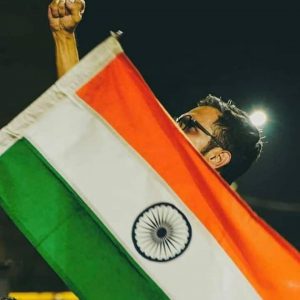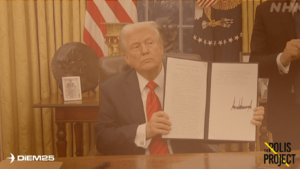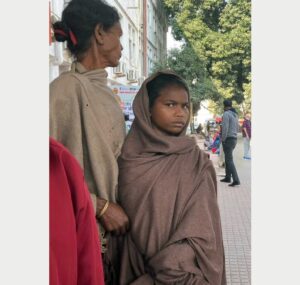
Is it my fault that I say India is mine as much as it is yours? – A profile of Umar Khalid

“At no time have governments been moralists. They never imprisoned people and executed them for having done something. They imprisoned and executed them to keep them from doing something. They imprisoned all those prisoners of war, of course, not for treason to the motherland…They imprisoned all of them to keep them from telling their fellow villagers about Europe. What the eye doesn’t see, the heart doesn’t grieve for.”
― Aleksandr Solzhenitsyn, The Gulag Archipelago, 1918-1956
‘Political Prisoner’ is a category of criminal offense that sits most egregiously in any civilized society, especially in countries that call themselves liberal democracies. It is a thought crime: the crime of thinking, acting, speaking, probing, reporting, questioning, demanding rights, and, more importantly, exercising one’s citizenship. But these inhumane incarcerations do not just target private acts of courage, they are bound together with the fundamental questions of citizenship, and with people’s capacity to hold the State accountable. Especially States that are unilaterally and fundamentally remaking their relationship with their people. The assault on the fundamental rights has been consistent and ongoing at a global level and rights-bearing citizens are transformed into consuming subjects of a surveillance State.
In this transforming landscape, dissent is sedition, and resistance is treason.
While the Indian State has a long history of ruthlessly crushing dissent, a new wave of arrests began in 2018. Eleven prominent writers, poets, activists, and human rights defenders have been in prison, held under the Unlawful Activities (Prevention) Act. They are accused of being members of a banned Maoist organization, plotting to kill Prime Minister Narendra Modi, and inciting violent protests in Bhima Koregaon. To date, no credible evidence has been produced by the investigating agency, and those accused remain incarcerated without bail. Since the anti-Citizenship Amendment Act protest began in December 2019, students, activists, and peaceful protesters have been charged with sedition, targeted with violence, and subjected to arrests. Since then, more arrests have followed specifically targeting local Muslim students leader and protestors, including twenty-seven-year-old student leader Safoora Zargar, who is currently pregnant.
Since the COVID-19 lockdown was announced, India’s leading public intellectuals, opposition leaders, writers, thinkers, activists, and scholars have written various appeals to the Narendra Modi government for the release of India’s political prisoners. They are vulnerable to COVID-19 contagion in the country’s overcrowded jails, where three coronavirus-related deaths have already been reported. In response, the State has doubled down and rejected all the bail applications. It also shifted the seventy-year-old journalist Gautham Navlakha from Delhi’s Tihar Jail to Taloja, without any notice or due process – Taloja is one of the prisons where a convict has already died of COVID-19.
A fearful, weak State silences the voice of dissent. Once it has established repression as a response to critique, it has only one way to go: become a regime of authoritarian terror, where it is the source of dread and fear to its citizens.
How do we live, survive, and respond to this moment?
In collaboration with maraa, The Polis Project is launching Profiles of Dissent. This new series centers on remarkable voices of dissent and courage, and their personal and political histories, as a way to reclaim our public spaces.
Profiles of Dissent is a way to question and critique the State that has used legal means to crush dissent illegally. It also intends to ground the idea that, despite the repression, voices of resistance continue to emerge every day.
This profile was compiled by Ansab Amir. You can read Varavara Rao’s profile here, the profile of Sudha Bharadwaj here, that of GN Saibaba here, Gautham Navlakha’s profile here, Anand Teltumbde here, Sharjeel Usmani here, Shoma Sen here, Surendra Gadling here, Asif Iqbal Tanha here, Rona Wilson here, Sudhir Dhawale here, Sharjeel Imam here and Arun Ferreira here.
UMAR KHALID Photo credit: United Against Hate Umar Khalid, 33, is a human rights activist, a former research scholar at Jawaharlal Nehru University (JNU), and a vocal critic of the current Indian government’s anti-minority policies. His political involvement began following the Batla House encounters in his locality of Zakir Nagar in New Delhi in 2008, when two alleged terrorists were killed. The encounter led to widespread propaganda against local residents and the students of Jamia Millia Islamia University. The politically charged atmosphere, constant surveillance, and the witch-hunting of minorities made Khalid, then a student of History at Kirorimal College in Delhi University, aware of the injustices surrounding him. This tryst with activism led him to meet many like-minded people from JNU, where he decided to pursue his MA at the Centre for Historical Studies in 2009. He later completed his Ph.D. with a thesis titled: “Contesting claims and contingencies…
Related Posts


Donald Trump’s Master Economic Plan I Opinion by Yanis Varoufakis




